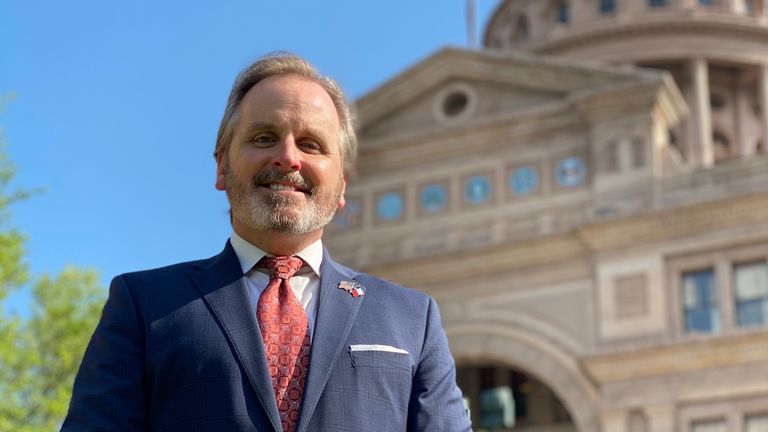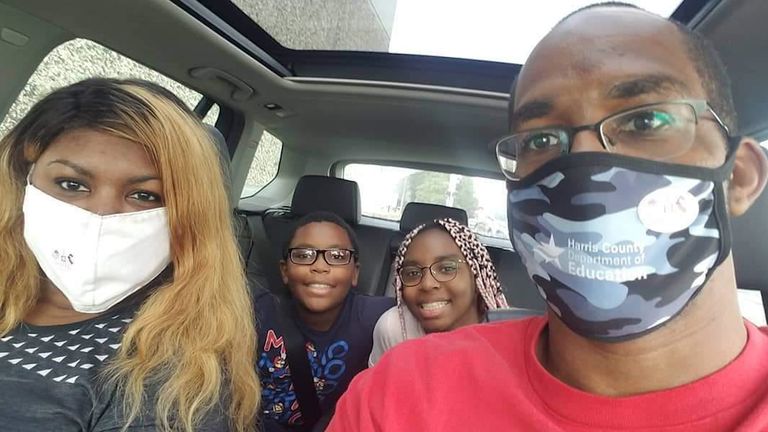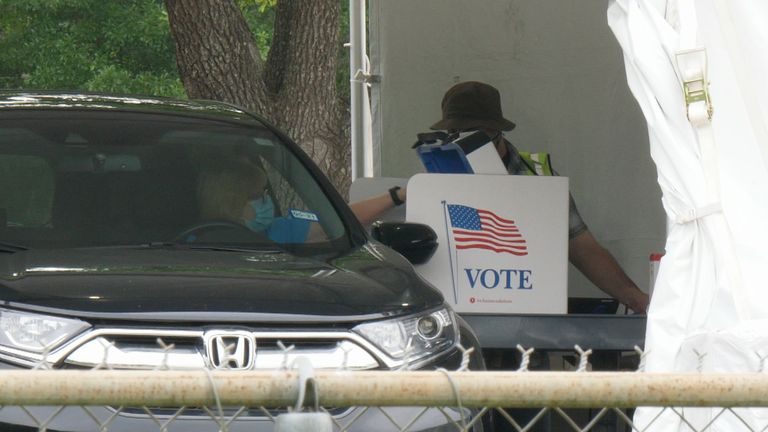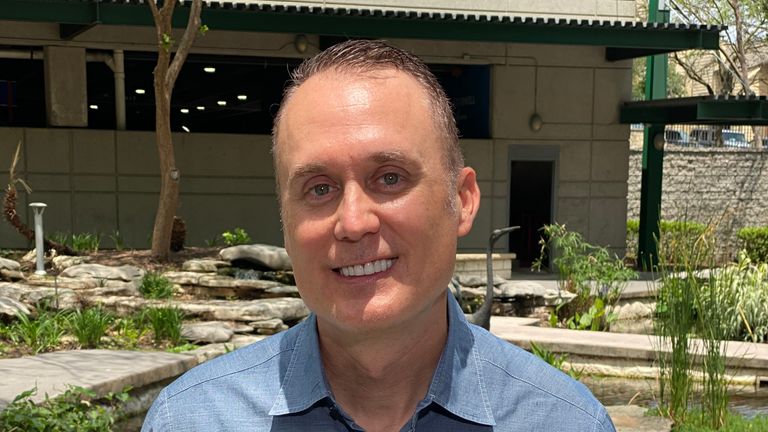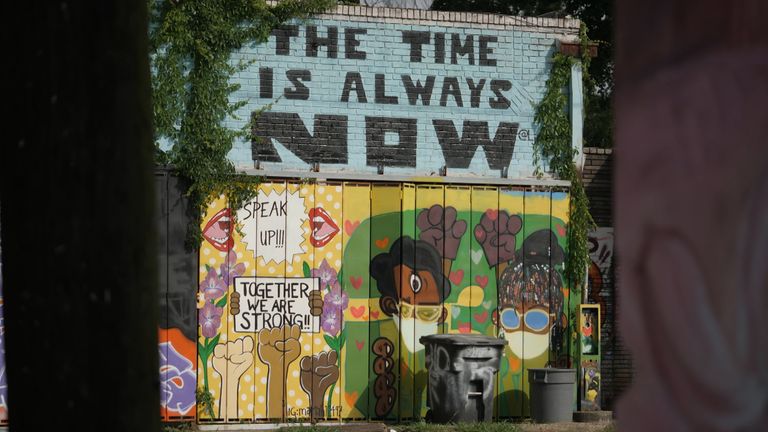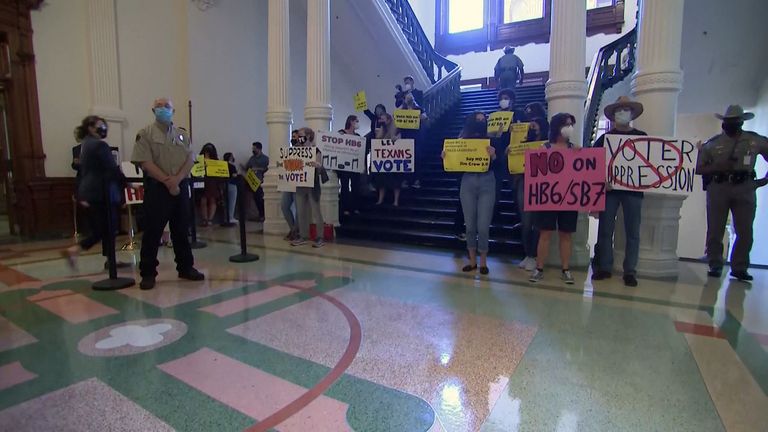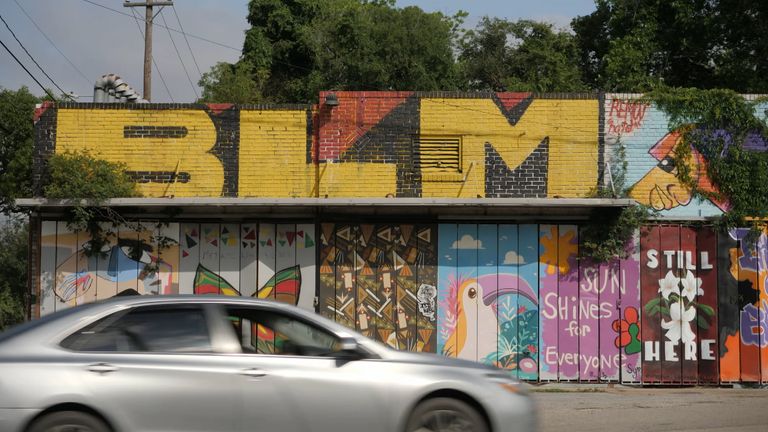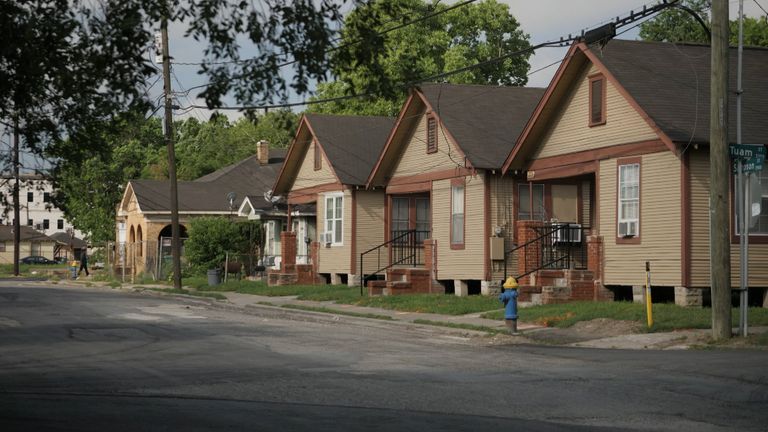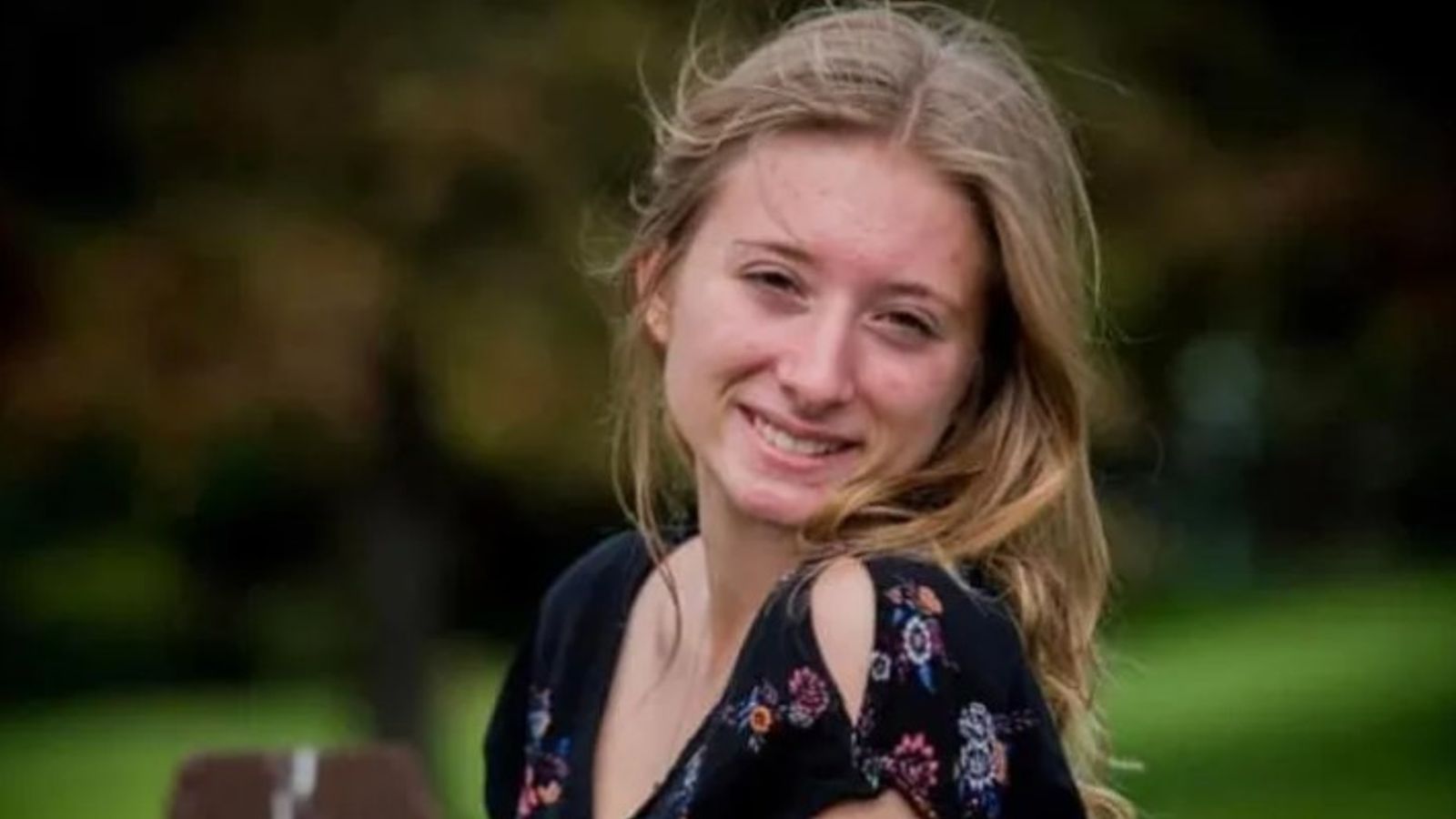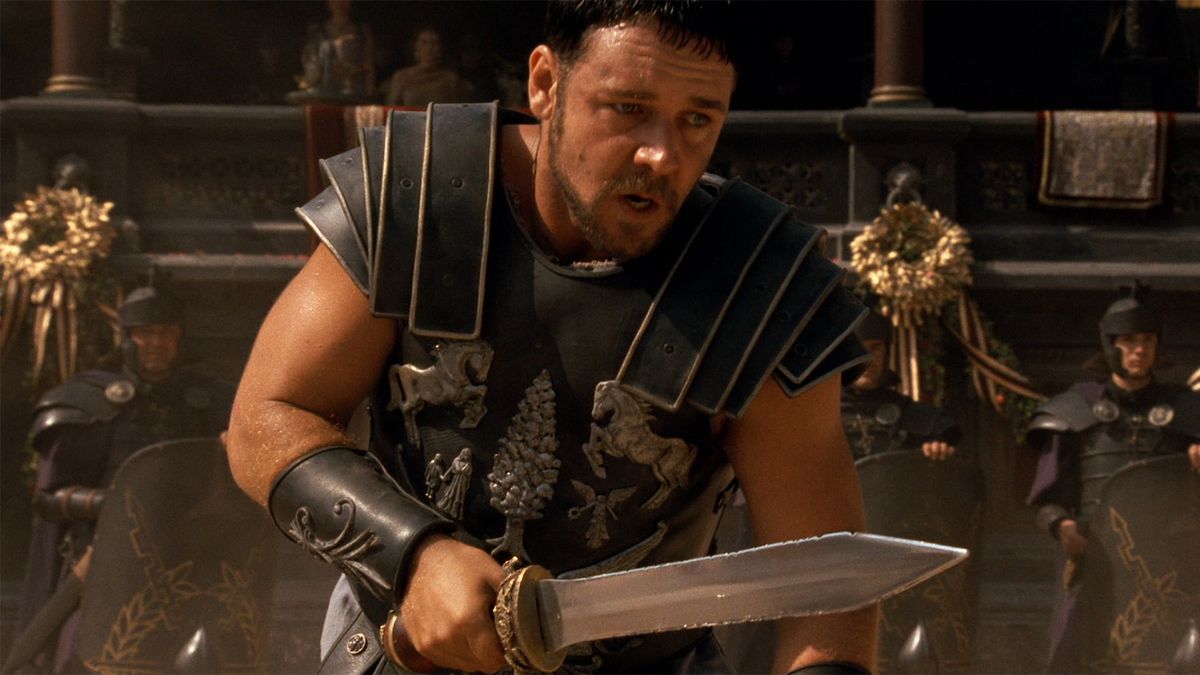In the Third Ward of Houston in Texas, the name and face of George Floyd adorn dozens of walls.
The murals and slogans reflect that he spent most of his life in this neighbourhood.
His death forced a reckoning on racial equality and police brutality in America but there is another battle being fought over discrimination, and Houston has taken centre stage.
A controversial new voting law, drafted by the Republican-controlled legislature in Texas, has prompted protests and the threat of legal challenges.
In the wake of Donald Trump’s unfounded claims of a stolen election, the law is incendiary.
Provisions on absentee ballots, the number of polling stations and the presence of partisan poll watchers, the law’s architects say, will ensure election integrity and cut out voter fraud.
But activists say it targets voters who have been historically disenfranchised – comparing it to the “Jim Crow” laws that enforced segregation more than a decade ago.
Danny and Davida Norris were among those who voted at a drive-in polling station in last year’s presidential election, part of a record turn-out in Houston, its surrounding Harris County and America as a whole.
“These are just the different versions of what they were doing in the early part of the 20th century,” said Mr Norris of the new law.
“The general idea is that, if you can’t win, just suppress the vote.”
“Every time there’s progress being made – you have Obama in office, then Trump comes right behind it – it feels like there’s two steps forward and five steps back,” said Mrs Norris
“We aren’t in chains and enslaved but we’re still fighting.”
The Texas law is the latest by Republican legislatures after November’s election saw Democrats take control of the White House and the US Senate.
But the author of the Texas law denies it is an attempt to hold on to power.
“I’ve heard that argument and there’s a big national debate going on and I realise that’s happening here in Texas,” said state senator Bryan Hughes.
“This is not about the outcome of the election.
Subscribe to the Daily podcast on Apple Podcasts, Google Podcasts, Spotify, Spreaker
“We like how things went in 2020. President Trump won Texas and I was re-elected with 75%.
“No matter who wins or who loses, we want the system to work.
“And if it’s as secure and accessible as we can make it, that’s what we’re going to do.”
He points to allegations of suppression and discrimination that accompanied a law which required voters to produce photo ID.
“What happened after voter ID was implemented? Turnout went up in all sectors,” he said.
But campaigners dismiss claims of widespread voter fraud.
“There is a lot of research that went into these claims,” said Stephanie Gomez, of Common Cause Texas, “and there are no backed claims that our elections are insecure.”
The law, she said, “makes voting an inconvenient and inaccessible thing”.
Similar legislation in states like Georgia has also encountered a new form of opposition in the shape of major companies choosing to speak out.
In Texas, tech entrepreneur Brett Hurt, the co-founder of data.world, is one of the most outspoken over what he describes as “oppressive voter restrictions”.
“Show me a time in US history where democracy has been increased, whether it is giving women the right to vote or giving people of colour the right to vote, where that’s led us to a bad place,” he said.
“In every case, it’s led to more prosperity. It’s led to more business.
“It’s led to a better society overall.”
Houston’s Third Ward has often been referred to as the cradle of the city’s civil rights movement, where students once staged protests at segregated restaurants.
That mood of protest is very much alive.

